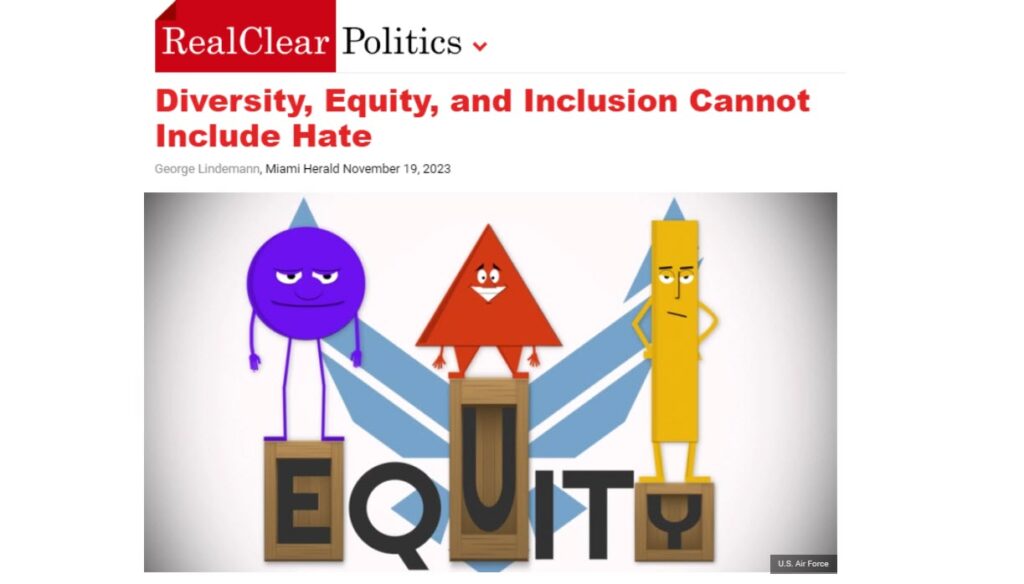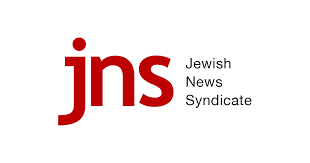
July 2 2025 By George Lindemann
No taxpayer-funded hate in the arts in Florida | Opinion
A new law banning public funding for organizations that promote hate, including antisemitism, passed ...
November 19, 2023 By George Lindemann

It is time for Diversity, Equity and Inclusion 2.0. The war in the Middle East, graphically delivered to our devices via social media, has caused a horrific outburst of hate and violence. DEI 2.0 is a campaign against all forms of hate and violence. The goal is to achieve a more equitable society for all, not just some, and we can achieve it if we all urge our non-profit leaders to act now.
Soon after George Floyd’s death in 2020, non-profits embarked on a nationwide effort to reduce systemic racism. Institutions rewrote manuals and hired staff to create Diversity, Equity, and Inclusion — DEI — programs. These efforts have positively impacted American society, welcoming marginalized people into more facets of American life. But DEI is silent on who and what kind of behavior merits exclusion. Institutions must address this shortcoming swiftly and with moral clarity.
Language is significant for DEI 2.0. I have spent the past several weeks talking to institutions’ CEOs who were generally receptive, but requested anonymity. These are scary times, but most of the DEI statements can be found on institution websites. One thoughtful organization has as a focus on the front page of their website: “The organization’s future depends on its open embrace of people of all backgrounds, experiences and perspectives.”
This is an excellent goal, but isn’t it just as important to exclude hateful behavior?
A better statement from another organization aims to create “an inclusive environment for everyone regardless of race, color, religion, national origin, sexual orientation, gender, identity or disability. We do not tolerate hate or discrimination of any kind.” This group doesn’t tolerate hate. That’s great, but “not tolerating” is too passive. Evolved diversity statements affirm as a key part of organizational culture a desire to seek out diversity. Some institutions have even put diversity in their mission statements.
That’s why DEI 2.0 is crucial. Compare the last statement to this one: “We wholeheartedly condemn all forms of violence, hate and prejudice against any individual or community.” Doesn’t that sound right? And these are not just words; they are actionable.
Universities are proud to advertise their DEI efforts, yet these same institutions often hire faculty who promulgate ugly views. If the organization’s operating manuals actively seek to root out all forms of hate, those with “ugly” views won’t get hired. New York Times columnist Bret Stephens wrote on Oct. 8: “Diversity that thinks only of race is anti-diversity; inclusion that functionally excludes … is not inclusive.”
It seems obvious. But it is not actionable if it is not in the operation manual. And a manual is not just a document; it spells out institutional values and permeates institutional culture.
Before Oct. 7, I thought that power and oppression were the primary barriers to diversity, equity and inclusion. I now realize that hate equally perpetuates these systems of oppression. When one group experiences hate, it is only a matter of time before it transfers to the next group. Hate is the barrier that prevents equity. DEI 2.0 will bring us closer to a more inclusive and equitable society where hate is simply not tolerated.
Nonprofits are often forward thinkers that set the tone for the nation. Academia trains future leaders, and DEI departments exist nationwide to address the evils of racism. However, material revisions are necessary because these departments and manuals have now become part of the problem.
Unfortunately, good intentions contributed to the current hateful environment. Still, this crisis has presented us with opportunities. Non-profit organizations must soul search as they recognize the need to work towards DEI 2.0. “No hate” is as important as inclusion; it’s as important as diversity; and will certainly help foster a more equitable society.
These all go hand in hand. Eventually, foundations and individuals will require “no hate” language before funding grants; some will require vendors, staff and even visitors to sign on to no-hate language. If you have ever written a check to a non-profit or volunteered to help, it’s now imperative to reach out to leaders and demand that organizations update their manuals to condemn all forms of hate and violence.
It’s the right thing to do.
George Lindemann Jr. is an investor, art collector and philanthropist.
Read more at: https://www.miamiherald.com/opinion/op-ed/article282012688.html

July 2 2025 By George Lindemann
A new law banning public funding for organizations that promote hate, including antisemitism, passed ...

July 2 2025 By George Lindemann
Florida’s new law ensuring that taxpayers will no longer subsidize hate or discrimination must ...

April 25 2024 By George Lindemann
The national effort to right the wrongs of America’s systemic racism will fall short ...